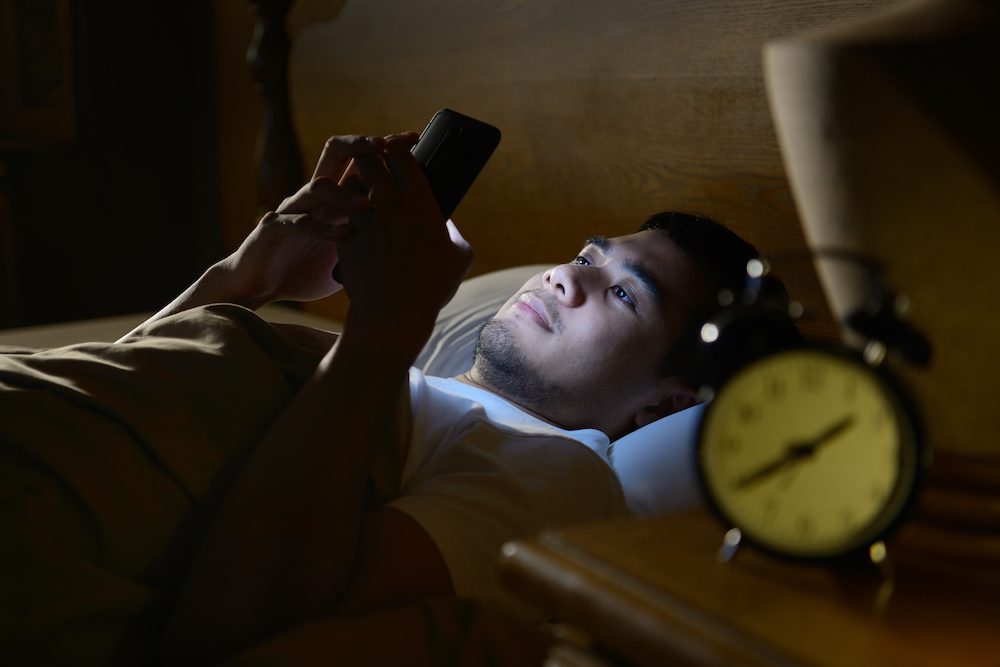A good night’s rest can improve your physical and mental health, mood, and overall performance. A healthy night’s sleep for adults means seven or more hours of sleep per night, although about 1 in 3 adults report not reaching that goal.
The quality of your sleep is equally as important to feeling well-rested as the amount of hours you sleep. Better sleep can be achieved through behavioral and environmental changes, known as sleep hygiene. Good sleep hygiene combined with other lifestyle adjustments can help you get a good night’s sleep.
Establish a Healthy Sleep Routine
Building a sleep routine is an important step in making sure you get a good night’s sleep. There are a number of ways to help your mind and body transition into a state of relaxation and feel ready to fall asleep.
- Take a Warm Bath: The change in temperature that your body experiences when you get out of the bath can relax your body and make you feel sleepy.
- Practice Muscle Relaxation: Progressive muscle relaxation involves tensing muscle groups throughout your body and then relaxing them one at a time, helping you to fall asleep faster.
- Do Some Breathing Exercises: Slow, deep breaths can help you focus and prompt your body to calm naturally.
- Drink a Warm Beverage: A warm, non-caffeinated beverage such as milk or herbal tea can help with evening relaxation.
- Avoid Blue Light: The blue light that comes from computer screens, televisions, cell phones, and other devices can inhibit your body’s ability to create melatonin, the hormone your body produces to promote sleep, making it difficult to fall asleep.
- Keep the Lights Low: Your circadian rhythm, which helps you fall asleep at night and wakes you up in the morning, can be manipulated depending on the amount of light you are exposed to. Keeping your environment’s light levels low up to two hours before your bedtime tells your circadian clock that it is time to start getting ready to sleep.
- Find a Better Time for Stimulating Activities: Exercise, important discussions, or intense television shows all have the potential to raise your heart rate. Activities that increase your heart rate should be avoided for a couple hours before bedtime.
Trouble Sleeping?
We can help. Tell us about your sleep to get a free Sleep Doctor score with recommendations for better sleep.
Make a Regular Sleep Schedule
Following a regular sleep schedule can help you meet your sleep goals. Certain habits can help you create and keep a consistent sleep schedule.
- Set a Fixed Bedtime: A consistent bedtime helps train both the body and brain. When your body and brain anticipate that bedtime is coming, they can start to prepare and wind down, which can make falling asleep easier.
- Consistent Wake-Up Times: Setting your alarm for the same time every day, even on days when you don’t have to get up by a certain time, can help you keep a consistent sleep schedule.
- Strive for 7 to 8 Hours of Sleep Every Night: Adults require seven to eight hours of sleep every night. Getting less sleep creates a sleep debt, which means that you have to start sleeping more to catch up and be well rested. Regular sleep times minimize sleep debt and allow you to feel well rested.
- When Changing Sleep Times, Adjust Incrementally: Your body and brain can adjust to a new sleep schedule, but make the change gradually over time. Changing your bedtime and wake-up times in small increments will help your body ease into a new sleep schedule when needed.
Create a Relaxing Bedroom Environment
Your environment affects your sleep quality, so it’s important to create a space that is relaxing and conducive to better sleep. Several adjustments may help you create a relaxing sleep space.
- Keep the Bedroom Cool: Sleeping in a bedroom that is between 60 and 67 degrees Fahrenheit can optimize your sleep and create a more comfortable environment.
- Invest in a Quality Mattress and Pillows: A comfortable mattress and pillow can help improve your sleep quality.
- Ensure a Dark Bedroom: A dark room promotes the production of melatonin and creates an optimal sleep environment. The use of light-blocking or blackout curtains can help achieve this.
- Minimize Disruptions: Children, pets, and phone calls, among other things, have the potential to wake you up in the middle of the night and affect how long and how well you sleep. Minimizing these disruptions can lead to a more relaxing sleep environment.
- Save Your Bed for Sleep: Limit the use of your bedroom to sleeping and sex. Other activities such as reading, journaling, eating, and watching television should be done elsewhere in your house.
- Avoid Screens: Screens create a number of distractions, pushing your bedtime later and limiting the amount of sleep you get. They also expose you to blue light which can make falling asleep difficult.
Foster Good Sleep Habits During the Day
The habits you keep during the day are just as important to your sleep as those you keep in the evening and at night. Consider making some changes to your daily routine to improve the quality of your sleep.
- Exercise Early in the Day: Exercise has the ability to lower stress and boost sleep. Aim for 20 minutes of low-impact cardio, like walking, to help with your sleep. Exercising too late in the day can have negative effects on your sleep, so be sure to exercise at least four hours before bed.
- Limit Caffeine, Alcohol, and Nicotine: These substances should be avoided in the evening as they are associated with more awake time and lighter sleep during the night.
- Expose Yourself to Light Early in the Day: Exposure to bright light earlier in the day can help regulate your circadian rhythms. However, much like exercise, having bright light exposure too late in the day can hinder sleep.
- Limit Naps: Naps can be beneficial in certain situations, but they can cause problems for people already struggling with sleep. When taking naps, limit them to 30 minutes or less at the same time every day.
- Avoid Big Meals Before Bed: Large meals before bed can cause indigestion, which can make sleep difficult. If you find yourself waking up due to hunger, a light snack before bed may be helpful.
What to Do if You Can't Sleep
Not being able to fall asleep when you intend to can be frustrating, but there are steps you can take to alleviate some of that stress.
- Do Not Force Sleep: If after 20 minutes you have not been able to fall asleep, get up, go into another room, and do something else. Engaging in a relaxing activity until you start to feel sleepy can be helpful.
- Avoid Checking the Time: Looking at the clock can induce worry, and worry can make falling asleep difficult. It may be helpful to make sure the clock face is out of view so that you don’t focus on the time while trying to fall asleep.
- Consult With a Doctor: If sleep issues are ongoing, interfering with your daily activities, or causing other symptoms, talk with your doctor.
References
Ask the Sleep Doctor
Have questions about sleep? Submit them here! We use your questions to help us decide topics for future articles, videos, and newsletters. We try to answer as many questions as possible. You can also send us an email. Please note, we cannot provide specific medical advice, and always recommend you contact your doctor for any medical matters.









